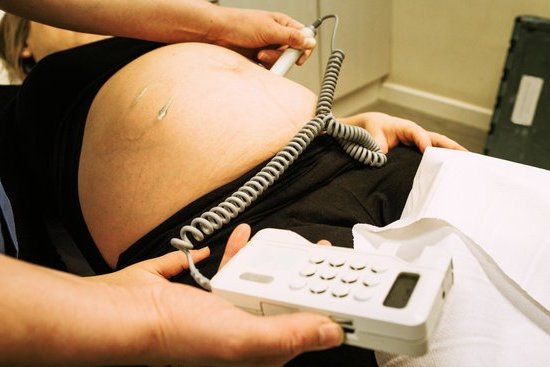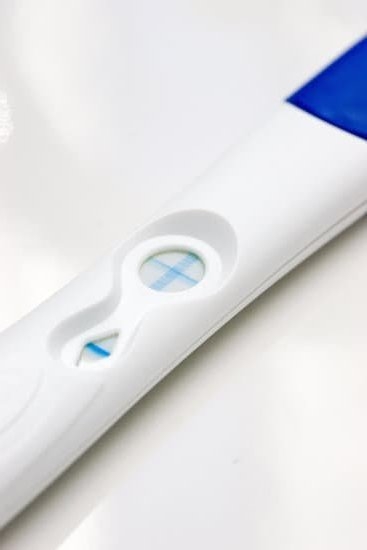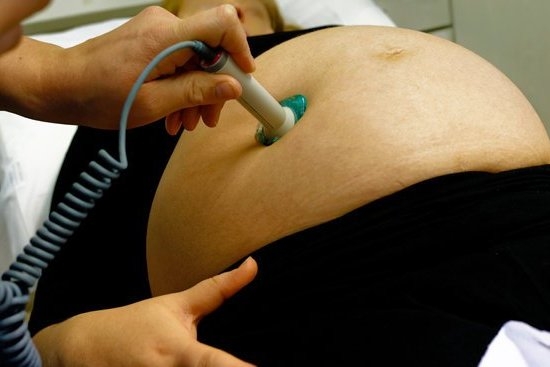Post pregnancy depression, also known as postpartum depression, is a common and serious medical condition that can affect women after giving birth. This article aims to provide a comprehensive understanding of this mental health issue, including its symptoms, the importance of seeking professional help, coping mechanisms, its impact on relationships, breaking the stigma, personal stories, and resources for support.
Post pregnancy depression can manifest in various ways and can have a profound impact on the mother’s emotional well-being and family dynamics. It is crucial to be able to identify the signs and seek appropriate support in order to effectively manage this condition. This article will delve into the symptoms of post pregnancy depression and discuss how to recognize and address them.
Seeking help from professionals is essential in addressing post pregnancy depression. In this section, we will explore why it is crucial for mothers suffering from this condition to seek help from healthcare providers who can offer the necessary support and treatment. Additionally, we will discuss coping mechanisms for managing post pregnancy depression and highlight the importance of breaking the stigma surrounding this mental health issue.
Symptoms of Post Pregnancy Depression
Post Pregnancy Depression, also known as postpartum depression, is a serious mental health condition that can affect new mothers. It is important to be aware of the symptoms in order to identify and address the issue as soon as possible. Some common signs of post pregnancy depression include feelings of extreme sadness, anxiety, and irritability. Many women also experience changes in sleeping and eating patterns, difficulty bonding with their newborn, and thoughts of harming themselves or their baby.
In addition to emotional symptoms, there can be physical manifestations of post pregnancy depression such as headaches, stomach problems, and fatigue. It is essential for new mothers to be mindful of these signs and seek help if they are experiencing any of these symptoms. The first step in addressing post pregnancy depression is recognizing that it is a real and treatable condition that requires professional assistance.
Research has shown that post pregnancy depression can have long-lasting effects on both the mother and her child. Therefore, early detection and intervention are crucial for the well-being of both individuals. By understanding and identifying the signs of post pregnancy depression, women can take proactive steps towards seeking the support they need to manage this challenging condition.
| Signs of Post Pregnancy Depression | Impact on Relationships |
|---|---|
| Feelings of extreme sadness | Strain on family dynamics |
| Anxiety and irritability | Difficulty bonding with the newborn |
| Sleep disturbances | Challenges in spousal relationships |
The Importance of Seeking Help
Experiencing post pregnancy depression can be a challenging and overwhelming time for new mothers. It is crucial for women to understand that seeking professional help is an essential step in overcoming this mental health issue. While some may try to tough it out on their own, the importance of seeking support from healthcare professionals cannot be overstated.
Recognizing the Signs
Many women may dismiss their feelings of sadness, anxiety, and hopelessness as just a normal part of adjusting to motherhood. However, it’s important to recognize that these symptoms could be indicative of post pregnancy depression. Seeking professional help allows for a proper diagnosis and the development of an appropriate treatment plan.
Accessing Treatment Options
Professional support for post pregnancy depression may include therapy, medication, or a combination of both. Healthcare providers can provide valuable guidance in determining the most effective course of action for each individual. They can also monitor progress and make adjustments as necessary.
Importance for Mother and Baby
Seeking professional help benefits not only the mother but also her baby. When a mother’s mental health is suffering, it can impact her ability to care for and bond with her child. By prioritizing professional support, mothers can work towards improved emotional well-being, creating a more positive environment for themselves and their babies.
By discussing the need for professional support in addressing post pregnancy depression, we hope to encourage mothers to take this important step towards recovery. It’s essential to remember that there is no shame in seeking help – in fact, it is a sign of strength and determination in overcoming this difficult period.
Coping Mechanisms
Coping with post pregnancy depression can be a challenging and overwhelming experience for new mothers. However, there are various strategies that can help in managing this condition and promoting mental wellbeing. It is important for women to seek the support and guidance they need during this difficult time.
One effective coping mechanism for managing post pregnancy depression is to prioritize self-care. This can include getting enough rest, eating a balanced diet, and engaging in gentle exercise such as walking or yoga. Taking time for oneself, whether it’s through reading a book, taking a long bath, or simply going for a walk, can also be beneficial in relieving stress and improving mood.
In addition to self-care, seeking professional help is crucial for managing post pregnancy depression. This may involve consulting with a therapist or counselor who specializes in perinatal mental health. Therapy can provide new mothers with the tools to effectively cope with their emotions and develop healthy coping mechanisms. For some women, medication may also be necessary to alleviate symptoms of post pregnancy depression.
It is also important for new mothers to lean on their support system during this challenging time. Connecting with friends and family members who understand what they are going through can provide much-needed emotional support. Joining support groups for women experiencing post pregnancy depression can also be beneficial in finding solidarity and understanding from others who have similar experiences.
| Coping Mechanisms | Strategies |
|---|---|
| Prioritize Self-Care | Getting enough rest, eating a balanced diet, engaging in gentle exercise |
| Seek Professional Help | Consulting with a therapist or counselor specializing in perinatal mental health, considering medication if necessary |
| Lean on Support System | Connect with friends and family members, join support groups for women experiencing post pregnancy depression |
Impact on Relationships
Changes in Intimacy and Communication
Post pregnancy depression can have a significant impact on relationships, particularly in the areas of intimacy and communication. Many individuals experiencing post pregnancy depression may struggle to connect with their partners on an emotional or physical level, leading to feelings of isolation and detachment. Additionally, the lack of effective communication due to the symptoms of depression can create misunderstandings and tensions within the family dynamic.
Supporting Your Partner
It is important for partners to recognize the signs of post pregnancy depression and provide necessary support. This may involve educating oneself about the condition, offering a listening ear, and assisting with practical tasks such as childcare and household responsibilities. Supporting a partner through post pregnancy depression requires empathy, patience, and understanding as they navigate this challenging experience.
Effect on Parent-Child Relationship
The impact of post pregnancy depression extends beyond the romantic relationship and can also affect the parent-child relationship. Individuals experiencing this condition may find it difficult to bond with their newborn due to feelings of apathy or overwhelming sadness.
It is crucial for both parents to seek professional assistance in order to address these challenges and ensure that the well-being of both the parent and child is prioritized. Through open communication, therapy, and support from loved ones, families can work towards healing and strengthening their bonds.
Breaking the Stigma
Post Pregnancy Depression is a common yet often misunderstood condition that affects many new mothers. Despite its prevalence, there is still a stigma surrounding this mental health issue, and misconceptions and taboos can prevent women from seeking the help they need. It’s important to address these misconceptions and taboos in order to create a supportive environment for women who are struggling with post pregnancy depression.
One common misconception about post pregnancy depression is that it’s just a case of the “baby blues” and will go away on its own. However, post pregnancy depression is a serious mental health condition that requires professional intervention. It’s crucial to understand that seeking help is not a sign of weakness, but rather a proactive step towards recovery.
Another taboo surrounding post pregnancy depression is the pressure on women to always feel happy and grateful after giving birth. This societal expectation can make women feel guilt and shame for experiencing feelings of sadness or anxiety. By openly discussing these issues, we can work towards breaking down the stigma and providing support for those who are struggling with post pregnancy depression.
Addressing these misconceptions and taboos surrounding post pregnancy depression is essential in creating an environment where women feel empowered to seek help without fear of judgment or shame. By educating ourselves and others about this condition, we can contribute to a more supportive and understanding society for new mothers experiencing post pregnancy depression.
Personal Stories
To truly understand the impact of post pregnancy depression, it is important to hear from individuals who have experienced it firsthand. Their personal stories shed light on the challenges, struggles, and ultimately the hope for recovery. Here are some real-life accounts of women who have navigated through post pregnancy depression:
- One mother, Emily, shared her experience of feeling overwhelmed and disconnected after the birth of her first child. She described feeling a deep sense of sadness and despair that she couldn’t shake off, no matter how much she tried. It was only after seeking professional help that she was able to find the support and treatment she needed to overcome post pregnancy depression.
- Another woman, Sarah, spoke about the guilt and shame she felt for not being able to bond with her newborn baby due to overwhelming feelings of anxiety and sadness. She emphasized the importance of reaching out to loved ones and healthcare professionals for assistance, as it was crucial in her path towards healing.
- Amy shared how post pregnancy depression affected her marriage and family dynamics. She explained how communication and understanding were key in rebuilding relationships and creating a supportive environment for recovery.
These personal stories highlight the varied experiences of women facing post pregnancy depression. By sharing these accounts, it’s evident that seeking help, both professionally and personally, is crucial in overcoming this challenging condition.
Beyond personal accounts, there are numerous resources available for those grappling with post pregnancy depression. Support groups, counseling services, hotlines, and online forums can provide valuable guidance and empathy during difficult times. It’s important for individuals experiencing post pregnancy depression to know that they are not alone in their journey towards hope and recovery.
Resources for Support
Dealing with post pregnancy depression can be overwhelming, but it is important to remember that support and resources are available for those who are struggling. Seeking help is crucial in managing and overcoming this condition, and there are numerous organizations, hotlines, and websites dedicated to providing assistance to individuals experiencing post pregnancy depression.
Here are some helpful resources for support:
- Postpartum Support International (PSI): A global organization offering support, education, and advocacy for individuals affected by perinatal mood and anxiety disorders.
- National Suicide Prevention Lifeline: A 24/7 hotline providing free and confidential support to anyone in emotional distress or crisis.
- The Blue Dot Project: A non-profit organization focused on raising awareness about maternal mental health disorders, including post pregnancy depression.
- Online support groups: Websites such as Postpartum Progress and What to Expect offer online forums where individuals can connect with others who have experienced or are currently dealing with post pregnancy depression.
- Therapy directories: Websites like Psychology Today and GoodTherapy.org allow users to search for licensed therapists specializing in perinatal mental health.
It is important to remember that seeking help is not a sign of weakness, but rather a proactive step towards healing. Whether it’s through therapy, support groups, or helplines, there are resources available to provide the support needed during this challenging time. Remember that recovery from post pregnancy depression is possible, and reaching out for help is the first step towards finding hope and healing.
Conclusion
In conclusion, post pregnancy depression is a serious and challenging condition that can affect women after childbirth. Recognizing the symptoms, seeking professional help, and utilizing coping mechanisms are crucial steps in managing this mental health issue. While it may impact family dynamics and relationships, breaking the stigma surrounding post pregnancy depression and sharing personal stories can provide hope and support for those going through similar experiences.
It’s important to remember that recovery from post pregnancy depression is possible. By reaching out to supportive organizations, hotlines, and websites, individuals can find the resources they need to begin their journey towards healing. Additionally, connecting with others who have gone through similar struggles can provide a sense of community and understanding.
Ultimately, finding hope and recovery after post pregnancy depression involves acknowledging the challenges while also seeking help and support. With the right resources and a supportive network of professionals and loved ones, individuals can overcome this condition and emerge stronger on the other side. Let us continue to raise awareness, break stigmas, and provide encouragement to those navigating their way through post pregnancy depression.
Frequently Asked Questions
Is It Normal to Get Depressed Towards the End of Your Pregnancy?
It is not uncommon for women to experience depression or mood changes towards the end of pregnancy. This could be due to a combination of physical discomfort, anxiety about labor and delivery, and hormonal fluctuations.
Can Fetus Feel When Mom Is Sad?
Studies have shown that a fetus can respond to their mother’s emotions by releasing stress hormones and experiencing changes in heart rate. This suggests that they may be able to feel when their mom is sad or stressed, although the extent of their emotional awareness is still debated in the scientific community.
Can Babies Feel When Mom Is Sad?
Babies are highly attuned to their mother’s emotions and can pick up on cues such as facial expressions, tone of voice, and body language. They may react to their mom’s sadness by becoming more fussy or difficult to soothe.
However, it’s important to note that this doesn’t mean they fully understand the concept of sadness as adults do.

Welcome to my fertility blog. This is a space where I will be sharing my experiences as I navigate through the world of fertility treatments, as well as provide information and resources about fertility and pregnancy.





